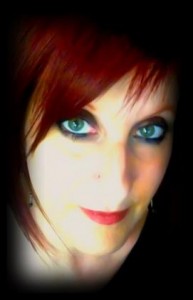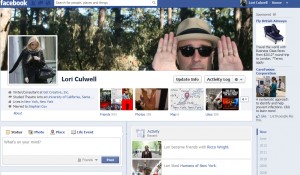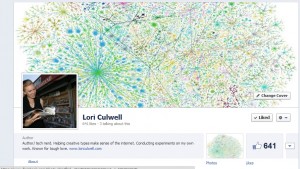What is With All the Lousy Author Web Sites?
 Every time I find a book I love (or even one that I don’t), the first thing I do is find the author’s site. After spending hours with the book, I often yearn to know more about the author and his or her background, to see what else they may have written.
Every time I find a book I love (or even one that I don’t), the first thing I do is find the author’s site. After spending hours with the book, I often yearn to know more about the author and his or her background, to see what else they may have written.
Often, the sites are lacking. And that’s being charitable.
I may not be neutral on the subject—I’ve worked in both publishing and web design for more than 15 years. But authors can no longer rely upon traditional avenues alone to promote their work. And considering publishing’s bootstrapped state, you can’t count on your publisher to manage your online presence.
This article is an open letter to authors to seize control of their online presence. Use your sites to connect with readers, increase sales and propel your career forward.
Following are some of the most common transgressions I find when visiting author sites.
A Site Written in Marketing Copy, Not Your Voice
Sure, it’s tempting to cut-and-paste from the book’s marketing materials. But frankly, you’re an author, it’s your “thing” to write. You’d be surprised how often I see this. Everything from the author bio to the homepage copy should be crafted by the author, conveying the voice that comes through in the author’s work.
An Aversion to Social Media
Not everyone is a Facebook or Twitter person. But ignore social media at your peril. It’s an easy—and free—way people can connect with you beyond your book. When people “like” your site or follow you on Twitter, they are inviting you into their personally curated world—it’s a great way to keep the momentum going after a book pub or between titles.
Resistance to Self-Promotion or Sales
I’ve had many author clients tell me that they wanted to soft-pedal the sales angle regarding their books. Or that they felt funny telling people they should buy their books or linking to Amazon when they favor small bookstore
Of course you should tell people buy your books! If someone comes to your site, they are interested in your work. It’s your job to make it easy for them to buy it. Link to Amazon and IndieWire, so your readers have choices for where to make their purchase.
While you’re at it, get comfortable with self-promotion. Your site is no place for subtlety. If you spent time on the New York Times best-seller list, by all means mention it. If Oprah blurbed your book, I suggest you use it.
Not Inviting Visitor Interaction
Your site is an opportunity to connect with your readers beyond the page—and the screen. You may want to have a frequently asked questions area, detailing common questions regarding your book or chosen genre. If your book would work well in a group discussion, include a guide for different topics to address. Include an email address or other ways to connect. If you’re feeling especially extroverted, you may want to consider offering to Skype in to book clubs that meet certain criteria.
Failing to Fully Utilize the Web Medium
There’s a misconception that you need an audio engineer to record podcasts, a videographer to create videos. Actually, all you need is a phone or a computer (not even need both). Record yourself reading from a chapter and post the audio online. (Here’s how.) Film a video of a reading, an appearance, or create something unique inspired by your book—all you need is a smartphone and a YouTube account.
Neglecting the Press
Readers are only part of your Web audience. Many are from the media—and you want to make it easy for them to promote your book. Include an author bio (it helps to have short, medium, and long versions), relevant press releases, and downloadable hi-res images for print and Web.
Being Stingy with Content
Another common thing I hear is that authors don’t want to give away too much content. When you post individual chapters as a tease (with an obvious link to follow through to buy the book), you are giving away enough to leave the reader wanting more.
All these suggestions are just a start. I guarantee that if you incorporate these strategies into your site, it will pay off. Plus, it’s gratifying (most of the time) to connect with readers, and exciting to have a new, free medium to share your work that is fully created and curated under your own domain.
Lisa Hazen is a Chicago-based Web Designer specializing in author Web sites. She’d love to hear from you at www.lisahazen.com or [email protected].



 Today, BookPromotion.com would like to welcome Rachel from
Today, BookPromotion.com would like to welcome Rachel from  A few weeks ago I read
A few weeks ago I read 
